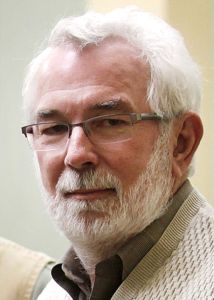On Thursday, Craig Pfeifle replaced South Dakota Seventh Circuit Judge Jeff Davis as the circuit’s presiding judge, after Davis and other members of the South Dakota court system were found to have systematically denied Indian parents their rights under both ICWA and the U.S. Constitution.
In a March hearing, U.S. District Judge Jeffrey Viken found that Davis, along with Pennington County State’s Attorney Mark Vargo and two of the state’s top Department of Social Services officials, failed to honor the rights of Native American parents under the Indian Child Welfare Act.
The decision was a landmark moment for the Lakota People’s Law Project and yet another among many validations of our claim that South Dakota has been flagrantly and willfully violating the important federal law for more than a decade.
Davis was found to be enacting policies which prevented parents from testifying, and obtaining aid from court appointed lawyers at preliminary 48-hour hearings–proceedings held within 48 hours of a child’s removal from his or her home in order to determine temporary custody. For these trials to take place it must be proven that children are in immediate danger, yet a majority of these cases failed to demonstrate this. The children were removed anyway.
“Judge Davis typically conducts hearings within 48 hours of an Indian child’s removal from the parents’ care. The hearings usually last less than five minutes. The removed Indian children often spend weeks or months in foster care away from their parents, Indian custodians and Tribes,” reads the Introduction to the summary judgment.
The 2013 lawsuit, filed by the Rosebud Sioux tribe, Oglala Sioux tribe, and three Native parents, was ruled in favor of the plaintiffs in March. Viken found that the defendants directly violated ICWA and due process of law according to the 14th amendment. He took the Natives’ side on six of seven issues–the seventh being an assertion that Davis acted as a final policymaker in 7th circuit courtrooms.
Davis and his fellow defendants filed for reconsideration of the ruling. He countered saying there are multiple ways that parents can appeal these temporary-custody decisions to the state Supreme Court, so a single judge cannot be accused of final policy making. Additionally, he also accused Viken of factual errors in a desperate attempt for validation.
Despite Davis’ resistance, the outcome is a victory for the Lakota people. Legal attention to ICWA violations are a needed push towards solving the issue of racist state actors seizing Indian children, often to benefit the bottom lines of both private and public institutions in South Dakota.
Though Judge Davis’ replacement hasn’t been formally linked to specific reasoning, this move reinforces the message rendered by Viken’s ruling.
Judge Pfeifle has an opportunity to set a new precedent for honorable relations between South Dakota courts and Native people. LPLP and others will be vigilant in ensuring this happens.
The Lakota People’s Law Project focuses on the injustices Natives are subjected to when ICWA is violated. While the result of the trial is encouraging, let no one confuse the outcome with a permanent solution for the Lakota still suffering under the weight of a ruthlessly racist system.
The punishment only applies to four state employees in South Dakota, where the entire system is constructed to deprive Indians of their federal rights.
More must be done to not only reveal the problems, but help formulate enduring solutions.


That’s good news. hopefully there will be more crooks to follow.
Think all the Judge’s need to be made accountable for their action’s,,, especially in Sioux Falls,SD,, we had a case in 97″ that denied our expert witness, and kid’s weren’t heard and they were old enough to,, went to parenting classes for over a year and they were denied because they weren’t licensed,, but were native. DSS caseworker’s DISAPPEARED when court was to be heard, Our video’s dissappeared and the caseworker made out that all our visit’s were terrible with the children,,, It’s sad what they got away with!! WIsh the caseworker could be held accountable too,,,
South Dakota is only the tip of the iceberg! We are going thru the same thing here in Idaho, not on the res. They refused our rights@ the 48 hr hearing, didn’t recognize the caregivers and even after the” imminent danger” has passed they still refuse to give up the children! They add ungodly amounts of fines, child support etc. so the parents and caregivers can never come out on top so they can permanently adopt them to non-natives.
They should investigate in every county in South Dakota Walworth county would be a good place to start.
Hopes from Ireland that you can get these criminals removed and get some headway.
This is more evidence of the continuing genocide and racist practices used against First Nation People.
true isn’t it.
Reblogged this on Blissfully Single.
Keep up the good fight. What is being done to your people IS criminal and needs to be stopped and corrected.
Good news! The system needs to be totally overhauled to correct a ruthless racist system!
a very small step in the right direction, now to step up the pace & keep it going!
Aberdeen ,SD had a case several years ago. The OCS made a multitude of errors. The adopted dad got jail time but the “mother” didn’t serve a day. The younger children are teenagers whose lives may never be the same. I was their preschool teacher. Unfortunately their biological mother was deceased. But their older siblings have been able to take them.
The same thing happens here in California, the Santa Rosa, Ca is one of the worst, right behind Fresno.